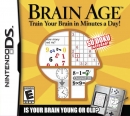o_O.Q said:
"Science is about knowledge, religion is about belief." have you seen an electron? do you believe they exist? if so why? "Apply this to your point about science ruining the environment; it is only science used in ignorance that has done that." science is always done with some degree of ignorance when practiced within a particular context for the first time no one knows everything so there is always some gap in our knowledge with regards to things and that very often carries with it massive potential for harm " Science has been used to help us understand how we are ruining the planet, and measure the extent of it, and science is being used to develop ways to help save the planet." true i agree, but the planet wouldn't need saving if we didn't cause problems to begin with |
In answer to your first question, yes, and yes. Quite apart from experiments that have been conducted since the late 19th century proving their existence, electrons have been imaged and filmed using quantum microscopes since 2008. https://phys.org/news/2008-02-electron.html
In answer to your second point, science is a quest for knowledge. There is risk associated with every step into the unknown. While we might do our best to anticipate and avoid risks in the advancement of science, some problems develop over such a long period, that their causes are not obvious to start with.
Example: Greenhouse gases have been increasing since the early 19th century - the start of the industrial revolution. This has been measured through ice cores https://www.bas.ac.uk/data/our-data/publication/ice-cores-and-climate-change/ but not until this century. It has taken decades of complex analysis of these and other phenomenon to prove humanity's impact on the environment. https://www.scientificamerican.com/article/discovery-of-global-warming/
Here is a medical example - Lung cancer went from being a rarity to a global epidemic in the late 19th century. But it wasn't until the 1940's, (after extensive medical research) that the cause was confirmed as being directly linked to smoking. This may be a no-brainer now, but there was a complete ignorance about the relationship between cancer and tobacco back then. https://www.ncbi.nlm.nih.gov/pubmed/22345227
Your final comment is a pointless one to make, considering that risks are integral to advancing science and technology. If we didn't take risks and learn lessons from their consequences, we would all still be sitting in caves wearing animal furs (taken from animals we'd probably already hunted to near extinction) and making flint spears.
The industrial revolution brought about changes for the better - for example, cheaper and more accessible goods, labour saving inventions, electronic communication, better medicine etc. but affecting climate globally was a byproduct that would not become apparent for many decades.
If recent science hadn't shown us that climate change and environmental destruction was the result of the technologies of the 19th and 20th centuries, we might never have developed new technologies for harnessing clean and renewable energies and fuels, recycling our waste or developing electric and hybrid powered vehicles. We might never have developed methods to help balance and renew the planet's resources.
Just as proof of a link between tobacco and lung cancer eventually changed our views on smoking, proof of a link between human activities and the environment is now triggering a change in the way we value our environment, forcing us to learn how to look after it.
Last edited by Hedra42 - on 10 January 2018



















